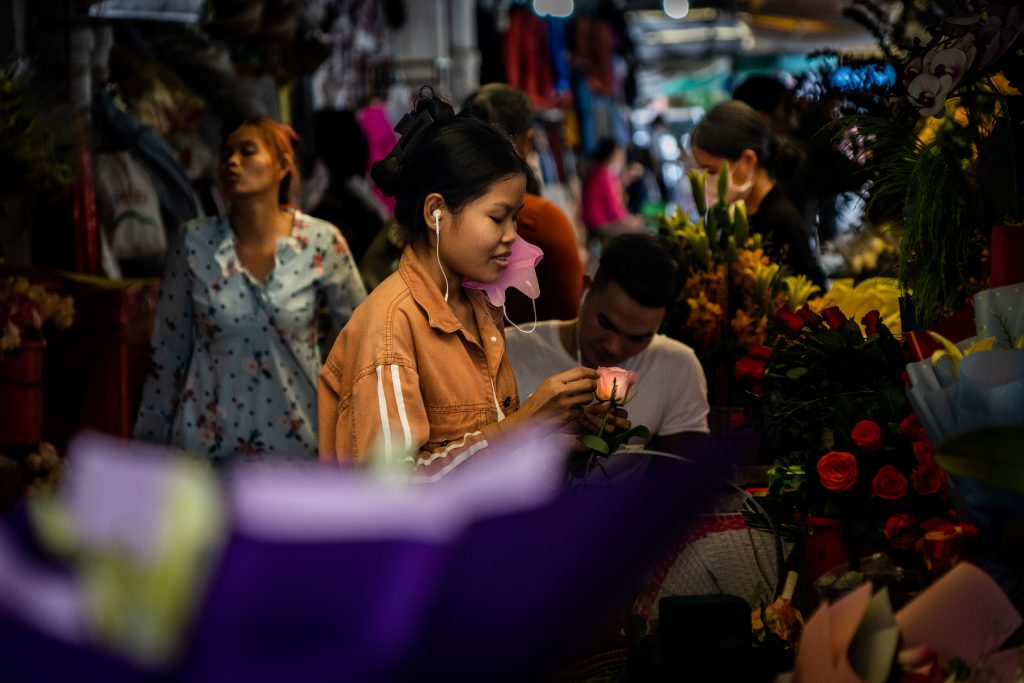Only days after Cambodia’s recently elected national assembly endorsed Hun Manet as the country’s new prime minister, the young leader revealed his vision for the next 25 years of economic growth and prosperity.
Cambodia is aspiring to become a high-income country by 2050. To make this happen, Manet released his Pentagonal Strategy, centring on the five objectives of sustained economic growth, more and better employment, human capital development, diversification of the economy and increased competitiveness.
For those who have been advocating sweeping reforms to Cambodia’s economy, the new strategic objectives comprise all the right catchwords. But it remains uncertain whether the ambitious new strategy will help Cambodia reach its targets.
Despite GDP forecasts for 2023 not living up to expectations, the Cambodian government forecasts 6.6 per cent GDP growth in 2024. The Asian Development Bank and International Monetary Fund downgraded their 2023 economic growth projections to 5.3 per cent, down from 5.8 per cent in April 2023, while the World Bank projects 5.4 per cent growth, down from 5.5 per cent in May 2023.
The minor adjustments were made in response to global geopolitical tensions and a worldwide economic slowdown, as well as the country’s structural issues, which include limited productivity and competitiveness, a lack of economic diversification and dependence on a small number of external markets.
The government’s optimistic growth projection for 2024 is based on the anticipated revival of key sectors including garment manufacturing. Cambodia’s garment sector showed continuing decline throughout 2023 but is expected to surge by around 8 per cent in 2024. For Manet’s pentagonal ambitions to become a reality, Cambodia must diversify its product range, upgrade its production capacity and productivity and process resources at home instead of exporting them.
The garment sector is not conducive to such transformations. The sector is already on life support — a tax break is in place for garment factories until the end of 2025 — but a continued reliance on garment manufacturing also exacerbates Cambodia’s economic vulnerability. Primarily a cut, make and trim industry employing low-skilled labour, garment manufacturing relies on the import of raw materials sourced from other Asian countries, predominantly China. It exports to the major economies where Cambodian products enjoy increasingly precarious preferential treatment under the European Union’s Everything But Arms scheme.
To move Cambodia beyond being a cheap labour hub, the Pentagonal Strategy outlines a comprehensive makeover of three sectors identified as the engines of future economic growth — agriculture, micro, small and medium-sized enterprises (MSMEs) and tourism.
With nearly 70 per cent of Cambodian households depending directly on agriculture, an overhaul of this sector is long overdue. The new strategic objectives bolster agribusiness to better serve Cambodia’s export markets. The turn to ‘smart farming’ advances local processing of Cambodian crops and high-value products instead of high-volume cash crops. Loans have also been made available for agribusiness and are being directed to ‘economic poles’ spread across the country.
The transformation of over 500,000 MSMEs in Cambodia is a core agenda under the new strategic plan. MSMEs closely entwined with agribusiness and digitisation will have access to a new loan scheme established in partnership with the private sector and Wing Bank. Efforts will also be made to integrate the informal sector into the formal economy under the National Strategy for Informal Development 2023–2028, encouraging informal businesses to register and receive benefits such as penalty waivers, tax incentives and skills training.
Tourism, heavily impacted by the COVID-19 pandemic, is forecasted to bolster GDP as international arrivals, particularly from China, begin to surge. Foreign tourists are returning to Cambodia, with 4.4 million arriving in the first 10 months of 2023. But the rising numbers have not generated the desired income, as most of the arrivals are low-spending visitors from neighbouring countries.
Crowds from China are not as anticipated despite major efforts including the new Siem Reap airport operating direct flights to and from a variety of Chinese destinations, the reintroduction of Chinese package tours and the launch of the China Ready program. Efforts to diversify the tourism sector are ongoing, with India and Indonesia identified as likely markets for outbound tourism. The Ministry of Tourism is also implementing a new tourism strategy and action plan with a focus on cultural heritage, coastal and eco-tourism.
As the new government pushes economic reforms with vigour, old habits die hard. International attention was recently drawn to a new investigation by Amnesty International into the 2022 evictions of 10,000 families making a living on the premises of the Angkor Archaeological Park. The Angkor Archaeological Park, Cambodia’s biggest tourist attraction and a UNESCO World Heritage site, is pivotal to the new tourism action plan. While the Cambodian government claims these families were squatters causing overdevelopment at the complex, the report revealed that the evicted families were relocated to a remote site lacking infrastructure, jeopardising their livelihoods.
Similarly, the voluntary registration of informal businesses under the new development strategy was temporarily suspended due to pushback from small business owners concerned about the regulatory burden imposed by the measure.
The economic reforms outlined in the Pentagonal Strategy are long overdue and will have beneficial impacts on Cambodia’s socioeconomic development. But as Cambodia’s new leadership pursues growth, it should consider that even well-intentioned interventions can have detrimental bearings on people’s livelihoods and may be reminiscent of past injustices suffered at the hands of authorities.
Heidi Dahles is Adjunct Professor in the School of Social Sciences at the University of Tasmania.
This article is part of an EAF special feature series on 2023 in review and the year ahead.


Hun Manet, the new prime minister of Cambodia, has announced his Pentagonal Strategy aimed at transforming the country into a high-income nation by 2050 through sustained economic growth, diversified employment, human capital development and increased competitiveness. But in the face of global economic headwinds and structural economic challenges, it remains uncertain whether these goals will ever be realised.